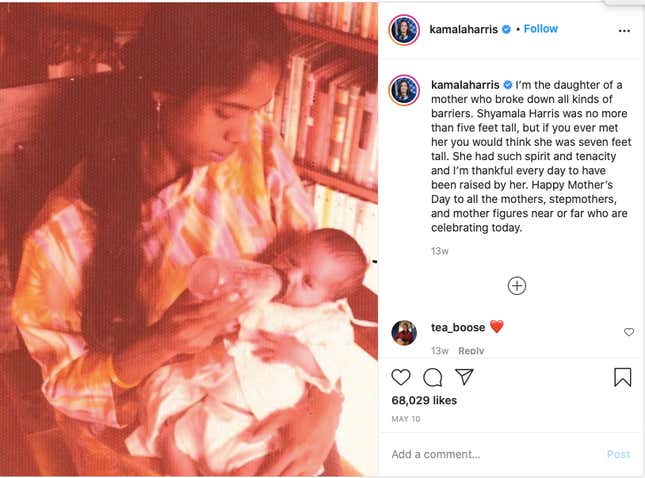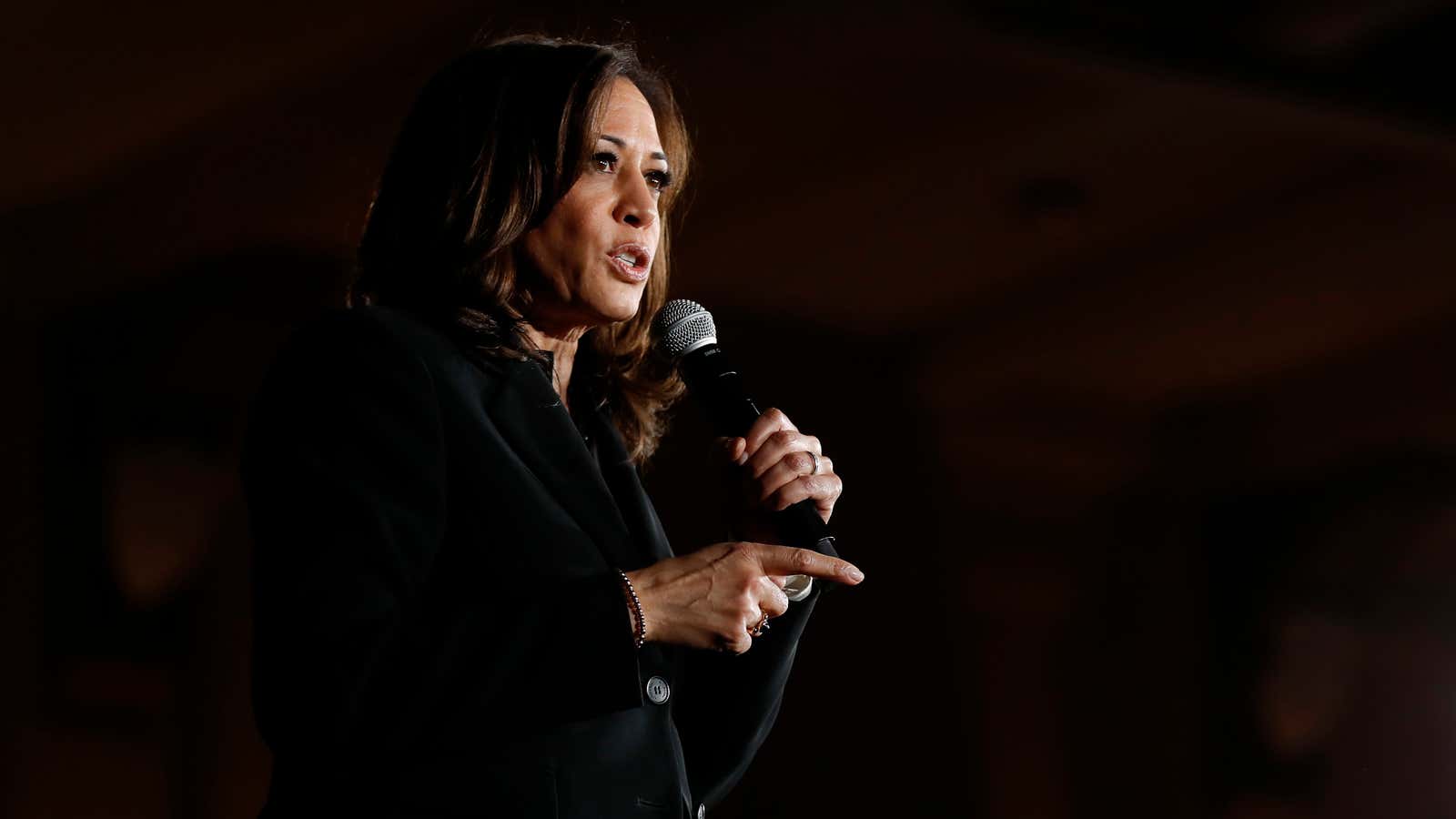In picking US senator Kamala Devi Harris to be his vice-presidential candidate, Democratic presidential candidate Joe Biden may have hit many of US president Donald Trump’s nerves.
Harris is a woman, a person of color, and of Indian-origin—all characteristics that speak directly to Trump’s stance on women, racial discrimination, and immigration. After Biden’s announcement yesterday (Aug. 11), Trump told the press at the White House that Harris was the “meanest, most disrespectful” member of the US senate.
Besides being a thorn in the US president’s side, Harris’s story is emblematic of the hardworking American mixed-race family, which has the potential to connect with voters across lines of race and religion.
The Indian roots
Harris was born to former economics professor Donald Harris, a Jamaican by birth, and Shyamala Gopalan, a cancer researcher who migrated from India to the US for her PhD. Harris’s parents met at the University of California, Berkeley, and married in 1963. They had Harris a year later, in 1964, in Oakland.
The young couple divorced in 1971, and Harris and her sister Maya stayed with their mother.
Harris is among the few Indian-origin Americans who have consistently upheld their Indian roots. Others, like Bobby Jindal, eventually shed their links to the Indian community in the US, much to the disappointment of his supporters.
Through the years, Harris has spoken openly and liberally about her connection to India, including visits to her grandparents’ home in Chennai, and living with a mother who had great “spirit and tenacity.”

Harris’s Indian roots go beyond her oft-mispronounced name Kamala, which is another name for goddess Lakshmi, and a derivative of the Sanskrit word for lotus. Shyamala kept both her daughters connected to their cultural roots. “My mother was very proud of her Indian heritage and taught us, me and my sister Maya, to share in the pride about our culture. We used to go back to India every couple of years,” Harris had told Aziz Haniffa, executive editor and a chief correspondent of India Abroad, an ethnic newspaper for Indian Americans, in August 2009.
Her cultural identity, though, is only one part of her sure and steady rise on the American political ladder.
“Fearless fighter” for VP
Biden had long said he’d consider only women as running mates, and the competition included political heavyweights such as Elizabeth Warren, Stacey Abrams, Susan Rice, Tammy Duckworth, and Karen Bass. Some Biden supporters pushed back against the choice given how critical Harris was of the former vice-president during the Democratic primary debates last year.
Biden said that Harris came out top because he needed “someone working alongside me who is smart, tough, and ready to lead. Kamala is that person. I need someone who understands the pain that so many people in our nation are suffering. Whether they’ve lost their job, their business, a loved one to this virus.”
Harris hails from California—a large state with a treasured voter and donor base for the Democratic Party. The 55-year-old is also a young comrade for the presidential candidate, who is often considered “too old.” And while her terms as attorney general were marred with controversies—mishandling of police misconduct, refusing a DNA test that could prove a murder accused’s innocence, and a “Crime Lab Scandal,” in which a technician was accused of skimming drugs—Harris has emerged as an outspoken advocate of police reform and dismantling of systemic racism.
Becoming the first woman of color on a major party ticket in the US is a major milestone for the “fearless fighter” who has been nurturing a career in law and politics for over two decades.
This story was updated with a quote from Biden on his choice and details of their clash during the primary debate.
